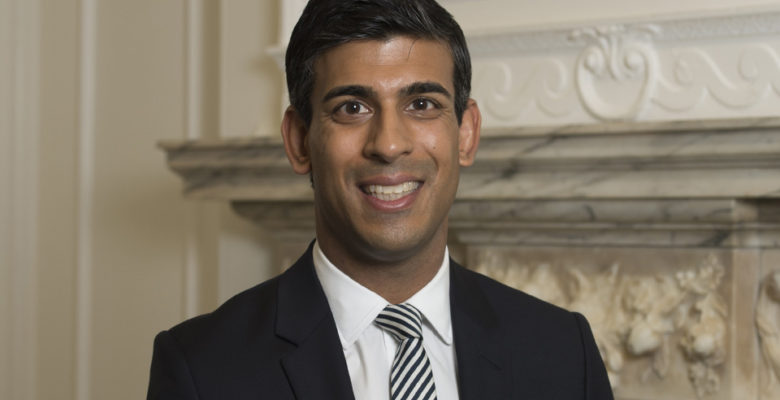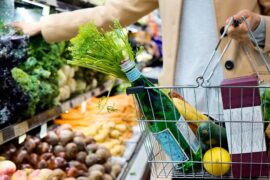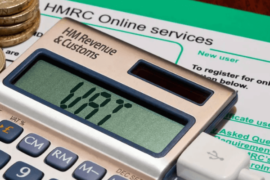
Chancellor Rishi Sunak has announced a cut to fuel duty and an increase in the NI payment threshold among measures to ease the impact of the rising cost of living in his Spring Statement, delivered to Parliament on Wednesday 23rd March.
Addressing colleagues in the House of Commons, Mr Sunak (pictured) said his Spring Statement ‘builds a stronger, more secure economy’ for the country, announcing a number of measures in response to rising inflation, as well as committing public money to combat both the human and economic costs of the ongoing conflict in Ukraine.
Key highlights of the Chancellor’s Spring Statement are detailed below:
Fuel Duty
A 5p decrease in the rate of Fuel Duty on petrol and diesel was among the headline announcements in the Chancellor’s Spring Statement. The change aims to help both individuals and businesses cope with rapidly rising fuel prices, one of the main contributors in yesterday’s announcement that inflation had risen further to 6.2%.
The decrease is the largest ever fall in Fuel Duty, second only to an 8p drop in the then-Chancellor Gordon Brown’s 2000 Budget. The change has already come into effect as of petrol and diesel sold after 6pm on 23rd March.
National Insurance
As previously he had previously indicated, the Chancellor did not renege on a previous announcement to lift National Insurance Contributions by 1.25p in the pound. The new temporary rate will come into effect from 1st April 2022 until the introduction of a new Health and Social Care Levy next year.
In response to rising inflation however, Rishi Sunak also announced that the minimum income threshold for National Insurance would also increase for employees, bringing it in line with that for Income Tax at £12,570.
With the increase to the thresholds announced in the Spring Statement, from 6 July 2022 employees earning between £242 (£190 from 6 April to 5 July 2022) and £967 per week will pay NICs at 13.25%. Earnings over £967 will attract a 3.25% charge. Employers will pay 15.05% on their employees’ earnings over £175 per week.
The Lower Profits Limit, the point where the profits of the self-employed become subject to Class 4 NICs, increased to £11,908 and from 6 April 2023 the limit is increased further to £12,570. In addition, there will be no Class 2 NICs on profits between £6,725 and £11,908, but earnings within this level will not impact eligibility towards a full state pension.
For the self-employed, where their profits exceed £11,908 per annum, they will pay 10.25% on the profits up to £50,270 and 3.25% on profits over that upper profits limit.
The Chancellor has announced an increase from April 2022 of £1,000 for smaller employers to reduce their employer NICs by up to £5,000 per year through the Employment Allowance.
Income Tax
The Personal Allowance for Income Tax payments will remain at £12,570, as previously set out by the Chancellor, however, Rishi Sunak also announced that as of 2024, the basic rate of income tax for non-savings and non-dividend earnings would decrease to 19%.
The change will be legislated for in a new Finance Bill and affect taxpayers in England, Wales and Northern Ireland; income tax rates in Scotland and set by the devolved administration in Holyrood.
Environment and climate change
Two additional schemes in the Chancellor’s Spring Statement also aim to facilitate the green economy and fight against climate change.
The government is to temporarily extend VAT relief on a number of energy saving materials, including rooftop solar panels, heat pumps and insulation. No VAT, previously at 5%, will be payable on such products for the next five years.
A previously announced scheme to deliver targeted business rates exemptions for plant and machinery used for renewable energy, as well as for low-carbon heat networks, will also be brought forward to start in April 2022, a year ahead of schedule.
Ukraine
The Chancellor began his Spring Statement to Parliament acknowledging the ongoing conflict in Ukraine. With the attempted Russian invasion of the country now entering its second month, Rishi Sunak announced £400 million of economic and humanitarian aid to those affected by the crisis.
He also spoke of how economic sanctions were progressing in their impact on Russia. Rishi Sunak confirmed that the UK had sanctioned over 1,000 individuals and organisations, frozen assets on major Russian banks and restricted access to financial markets.




















 Inflation falls to two-and-a-half year low
Inflation falls to two-and-a-half year low  New report reveals economic potential of Manchester Airport
New report reveals economic potential of Manchester Airport  Increase to VAT threshold takes effect
Increase to VAT threshold takes effect